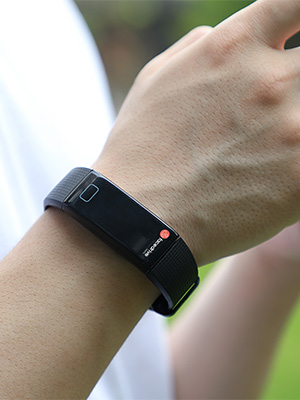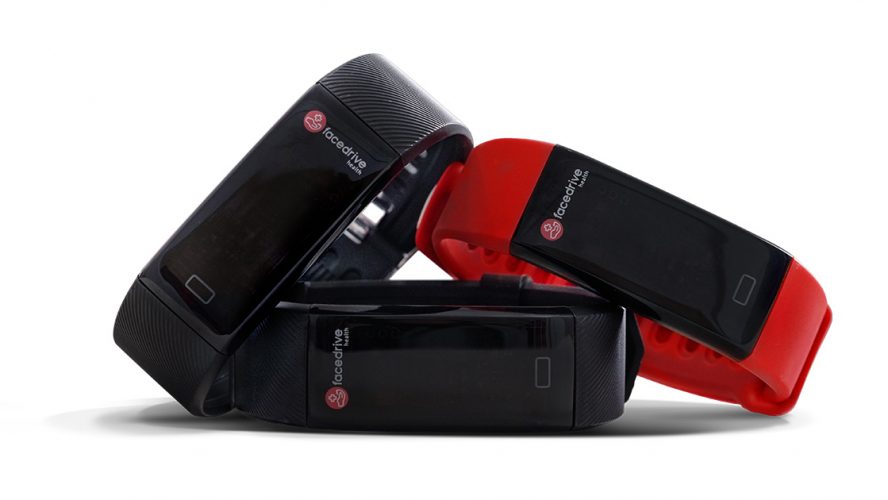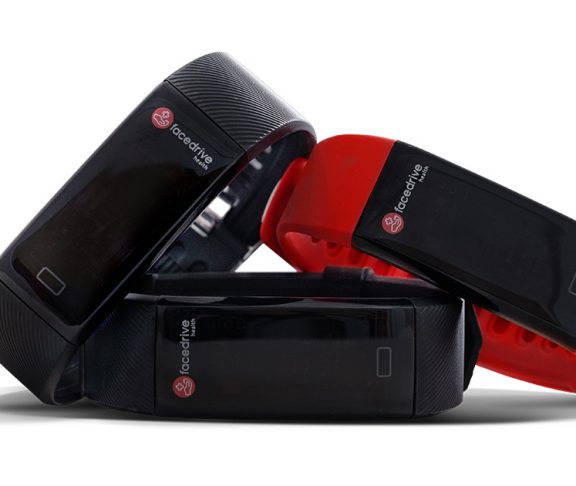
Patricia Nieva
Professor & Deputy Chair, Department of Mechanical & Mechatronics Engineering, Faculty of Engineering, University of Waterloo

William Melek
Professor, Mechanical & Mechatronics Engineering, Faculty of Engineering, University of Waterloo
Ground-breaking new contact tracing wearable tech can help mitigate the spread of COVID-19.
As people begin to return to work and schools reopen, contact tracing is playing a key role in keeping communities safe and stopping the spread of the coronavirus. One Canadian business has emerged as a leader in contact tracing wearable technology. Facedrive is an environmentally-and socially-responsible tech company that recently developed TraceSCAN, a device that could revolutionize the way Canada combats the coronavirus. The wearable alerts users if they may have been exposed to COVID-19 and it has the capability to either beep or vibrate if the wearer is within six feet of another person.
If anyone in the working premises reports COVID-19 positive, HR or health and safety officials can log in to the online reporting dashboard and see who they’ve been in contact with and their risk level, then send an exposure notification
“TraceSCAN is a Bluetooth wearable device that performs contact tracing by exchanging privacy-preserving encrypted IDs,” explains Dr. Patricia Nieva, Professor and Deputy Chair of the Department of Mechanical and Mechatronics Engineering in the Faculty of Engineering at the University of Waterloo. “The wearable can be worn comfortably on an individual’s wrist. It operates by scanning and advertising simultaneously to other devices within a specified network. When individuals come within the range of the minimum allowed proximity, the device gives a visual or vibrating warning and stores a timestamp.”
Protecting communities and workplaces by preventing outbreaks
Nieva explains that this wearable tracing technology will be especially crucial in mitigating the spread of COVID-19 in workplaces and facilities where smartphone use is limited, such as schools, nursing homes, and airlines. “Bluetooth-based contact tracing phone apps have already been adopted by several countries but aren’t sufficient to trace the transmission of COVID-19 across all communities,” she says. “This is because there are many individuals who don’t own smart phones for financial or other reasons, workers who don’t carry their phones for safety reasons, and students in elementary and high school, to name a few. TraceSCAN is unique because of its precise distance algorithm and artificial intelligence (AI) tools for contact tracing and health monitoring. TraceSCAN can identify contacts of positively-tested individuals to prevent an outbreak, and it’s important to keep schools and businesses open despite a positive case.”

The ground-breaking TraceSCAN technology was developed jointly by Facedrive and researchers from the University of Waterloo. “Through its partnership with the University of Waterloo, Facedrive will have access to unique research expertise in all the key technological areas needed,” says Dr. Nieva. “Access to the University of Waterloo’s expertise in sensing, signal processing, and AI will be key to the successful development and deployment of this technology, thus enabling the safe return of Canadians to the normal life they were used to prior to the pandemic.”
Contact tracing made simple with a secure platform
TraceSCAN is so promising that the Ontario government has already invested $2.5 million in the product. In a press release, the Ontario government stated that, “If anyone in the working premises reports COVID-19 positive, HR or health and safety officials can log in to the online reporting dashboard and see who they’ve been in contact with and their risk level, then send an exposure notification. Contact tracing will be made simple with all of the close proximity contact having been recorded.” Furthermore, not only is TraceSCAN a secure platform to mitigate the spread of COVID-19, it also protects users’ privacy because it doesn’t require GPS information or any user personal data aside from the wearable device’s ID.



